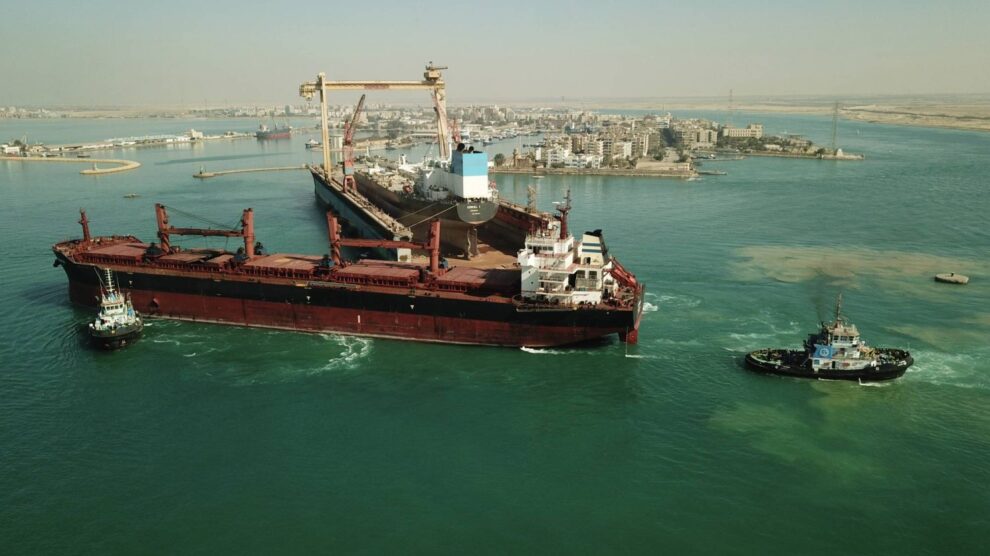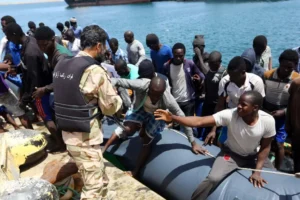Jerusalem (AsiaNews) – The effects on the global economy and trade of Israel’s war on Hamas in Gaza, the origin of the attacks by the Houthi rebel militias in Yemen on ships transiting the Gulf towards the Red Sea, continue to be felt. In particular along the strategic route that crosses the Suez Canal – the shortest route between Europe and Asia – and whose revenues have collapsed by 50% in the last period, as underlined by the Egyptian government.
Speaking at the World Economic Forum scheduled in recent days in Riyadh, Saudi Arabia, the Minister for Planning and Economic Development Hala Helmy el-Said underlines that “the decline is caused by navigation interruptions linked to ongoing tensions in the Red Sea ”.
The route that crosses the Suez Canal represents a fundamental hub for global trade, 12% of overall traffic passes through the area and the alternatives, such as navigation to the Cape of Good Hope, have far higher costs and times.
This is why the attention of many governments is focused on that stretch of Egypt, with Cairo confirming a profoundly critical situation that could worsen if the raids by the pro-Iranian militiamen who control Sana’a continue – as seems probable.
The Houthi attacks, in fact, have forced numerous ships crossing the Suez Canal and the Bab al-Mandeb Strait to choose an alternative, much longer route that circumnavigates Africa, causing delays and significant increases in the cost of goods.
In the 2022-23 fiscal year, the Suez Canal generated .4 billion in transit fees for Cairo, however it is easy to assume that the earnings for the current year will be greatly reduced due to the disruptions and obstacles along the trade route.
At the same time, traffic around the Horn of Africa has increased significantly, with an increase of at least 67%, according to data from the International Monetary Fund’s PortWatch platform. In response to the crisis, Egypt raised transit taxes from 5% to 15%, precisely to mitigate the impact on internal finances. The new tariff came into force in January in response to the evolving security situation and to compensate for losses incurred from the reduction in ship traffic through the Suez Canal.
Meanwhile, international diplomacy is moving in these hours, from the Egyptian capital to Saudi Arabia where the American Secretary of State Anthony Blinken has arrived. On the other hand, people continue to die in the Strip: according to al-Jazeera sources, there are at least 27 Palestinian victims in raids by the Israeli army in the Strip, in Rafah and Gaza City.
Among these there would also be several women and children, in a death toll that is becoming increasingly dramatic. Intense bombings by the military with the Star of David also occurred in southern Lebanon, following a weekend of repeated exchanges of fire with Hezbollah militiamen.
And if so far no big news has arrived from Cairo on the negotiations for the truce between Israel and Hamas, with a high official of the movement that controls the Strip reiterating that “the proposal is still being studied”, in Riyadh Blinken returns to point the finger at Tehran.
In the first stop of the tour focused on talks for a ceasefire and an increase in humanitarian aid for the civilian population, the head of US diplomacy underlines that Iran is the main source of instability in the region. The Secretary of State’s mission will then continue in Jordan and Israel, focusing on the plans for the “day after” the end of the war and the reconstruction plans for the Strip.
Source: AsiaNews











